#002 Your comfort zone will kill you
A personal reflection on the mentoring framework between MAInD and the MakerLab. We talk about comfort zones, reciprocal collaborations, clients versus archetypes, and participation as a driver of purpose.
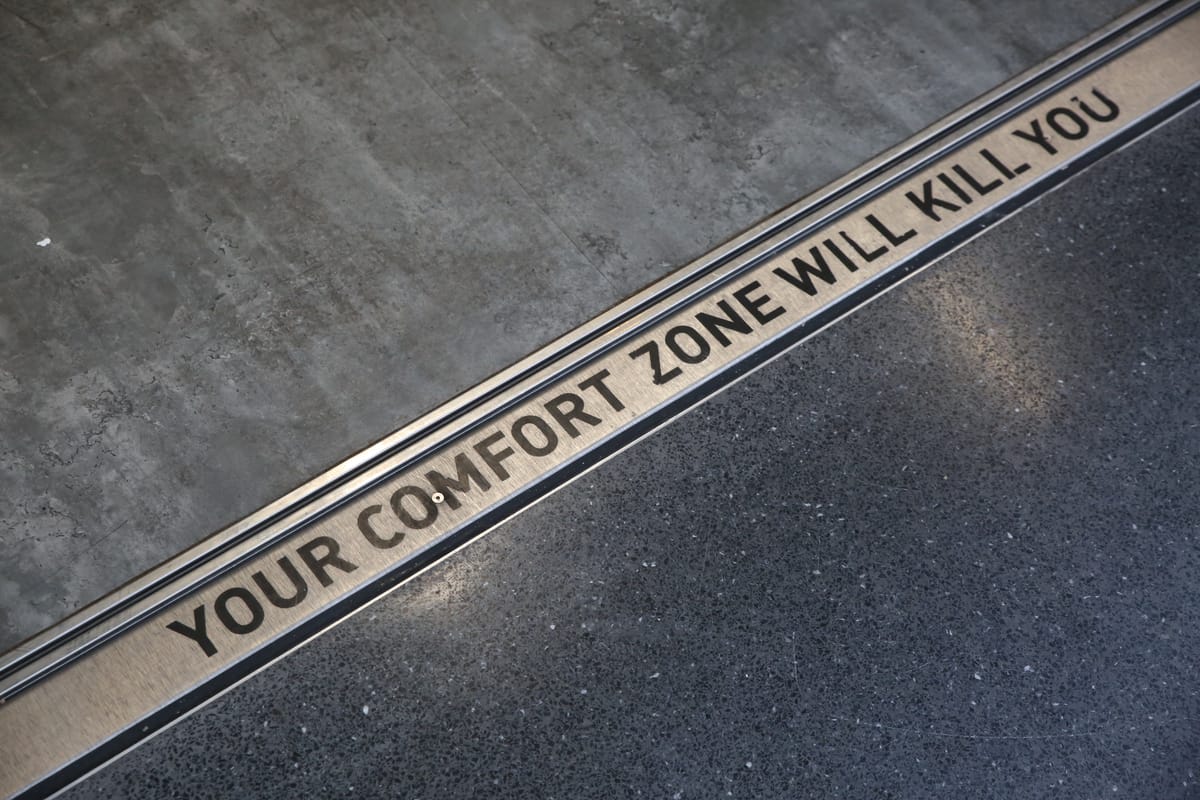
Two weeks feels both eternal and a blink of an eye. Showing up and sharing something I value is what I am determined to keep up and develop as we venture into this journey. Thank you for joining and for your support.
As I am writing, every word feels like it is on the verge of a cliff until the next one comes forward relieving the previous one from the fear of falling. I underestimated the tension, surprisingly good, that writing can provoke.
In this issue, after a few personal updates, we look at the learnings from a project I worked on last year. We talk about comfort zones, reciprocal collaborations, clients versus archetypes, and participation as a driver of purpose.
Updates
MakerLab Yearbook 2023 is done!
This week I sent to the printer the fourth MakerLab Yearbook. Making a book from start to finish is always an adventure and it became a sort of tradition that I try to keep as dynamic as possible.
Different conditions encourage new creative pathways that ultimately lead to different results. The book I had no time to make, ended up being the most fun one because of unexpected limitations. I look forward to sharing more with you about it.
January walks
I have been on a couple of good hikes in Italy and the Fränkische Schweiss. While craving time for short day trips, I am also looking at longer walks for the coming future and discovered the existence of the Sentiero Italia and felt like I just found a life project. 368 stops across the whole Italian boot. Wow.
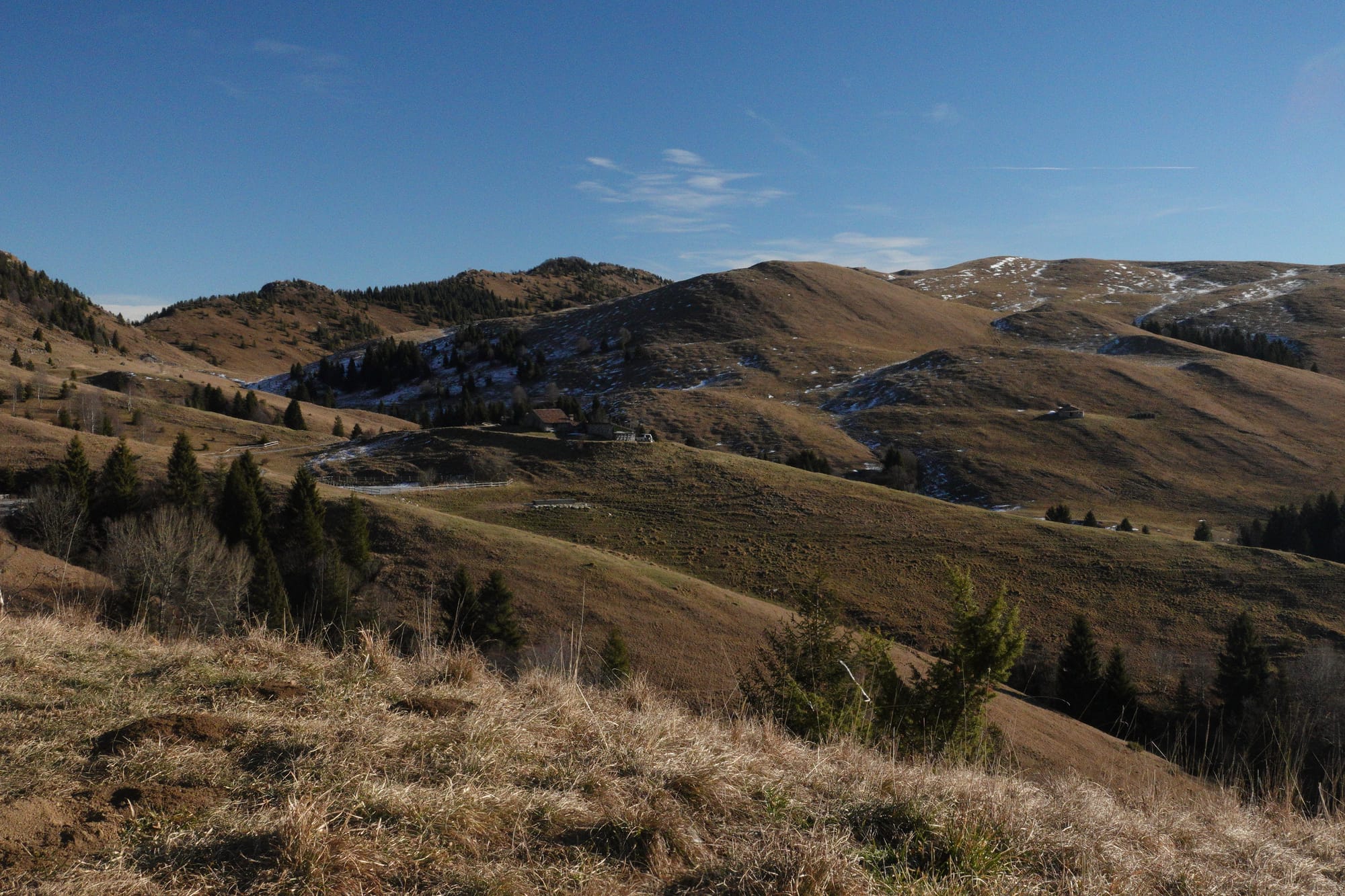
Book digest January
- Small changes, big impact: “Atomic Habits” by James Clear
- Awaken the explorer and naturalist in you: “The Blue Marble” by Patrick Svensson and “The Sea Around Us” by Rachel Carson
- Fun and practical writing advice: “Bird by Bird” by Anne Lamott
To read or to listen to books, that is the question. Would love to receive your book recommendations!
Headfirst or swan dive? Let's dive right into this issue!

Your comfort zone will kill you
This statement welcomes anyone who walks into the MakerLab. An invitation to leave your comfort zone and come in to explore.
I work at the MakerLab, a creative hub that empowers, inspires, and connects adidas employees by providing them with both:
- a space and a team (made by Jordi, Adrian, and me) that fosters product exploration and creativity.
- a stack of services and platforms that catalyze collaboration and knowledge-sharing across the brand.

Last week I met with Niko, a colleague visiting the MakerLab for the first time. He notices the sticker on the floor and shortly after asks me about my project highlight from last year.
Among all things, the one that came to mind is the one where I felt more challenged and grew the most. The one that made me feel a bit like writing Hotpot does, on my toes and always on the edge of a cliff. The collaboration with the Interaction Design MA at SUPSI.
Over the last few years, we ran several win-win collaboration frameworks with universities developing reciprocal collaboration and relationships with institutions, tutors, and students.
Through past mentoring programs, I had the chance to mentor graduating students from Elisava Research in Barcelona and discover my passion for helping others endure through creative journeys.
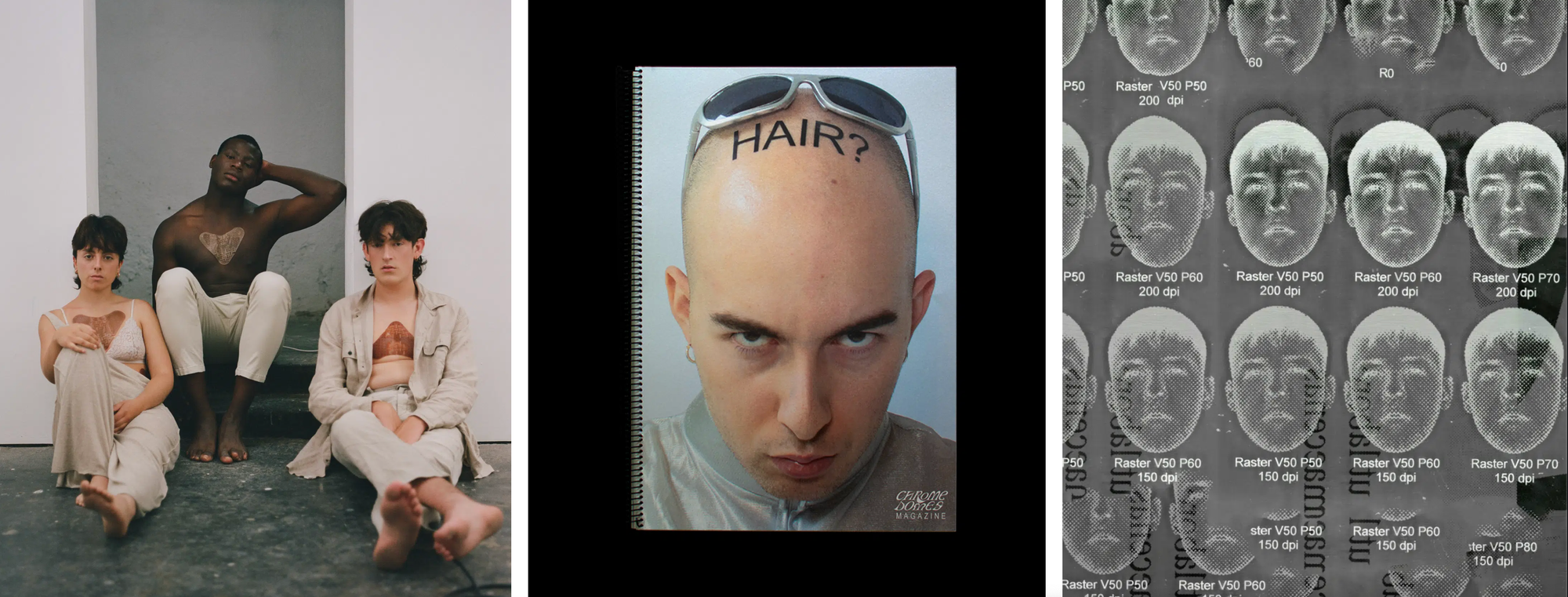
This Hotpot issue is about the first university collaboration I entirely set up. The one that made me leave my comfort zone and discover so much more.
Dynamic traditions
New partnerships are always a great opportunity to rewrite our playbooks. We are all different and the same formulas cannot apply to all partners. If mentoring programs had become a bit of tradition for our team, expanding them to new partners and being open to change have allowed us to introduce a new dynamism in a framework we were comfortable with.
Client vs Archetype
What design opportunities could the students seize in a service design class? And, most importantly, given the nature of the win-win fair-exchange framework, how can we ensure that the collaboration is fair for everyone involved?
Within such a framework, it would not be fair to provide the students with a defined problem or use case to solve. adidas is not the client, but instead an archetype that can embody opportunities that could apply to other organizations with similar features and parameters (type of organization, size, industry, demographics, etc.).
An archetype can be modular as well and deconstructed and modified to create new archetypes applicable to different scenarios.
In this way, while the user research can be fact-based and done on real-life organizations, the solutions might be thought for fictional companies, and be more universal and aspirational not only for adidas but for any organizations that share similar qualities and features.
Knowledge-sharing as the ingredient
With the intent to provide the students with creative guardrails that could lead to impactful and relevant design solutions, when brainstorming with Serena Cangiano and Massimo Botta, heads of the MA, we identified the important role that knowledge-sharing covers in the culture and the employee experience of any organization.
Working with students who might not have prior professional experience is also important to consider how they can effectively and meaningfully contribute. For this reason, the problem statement should be relatable and aligned with their experience in the professional world.
Designing Intelligent (Employee) Experiences
The service Design course, tutored by the Service Design Agency Spark Reply, is titled "Designing intelligent experiences".
The course focuses on user-centered design methodology, guiding the students through all the necessary steps to understand user needs, identify insights, turn them into opportunities, convert them into solutions and concepts, prototype them, and test them. All of this in 8 weeks. Intense.
Intelligent refers both to the intelligent technologies that might employed in the solution and to the role that knowledge might play within it.
The tutors shaped a course brief for the students shaping their course structure to the challenges and opportunities that arise at every step of the employee experience (pre-boarding, onboarding, long-term engagement, and offboarding)
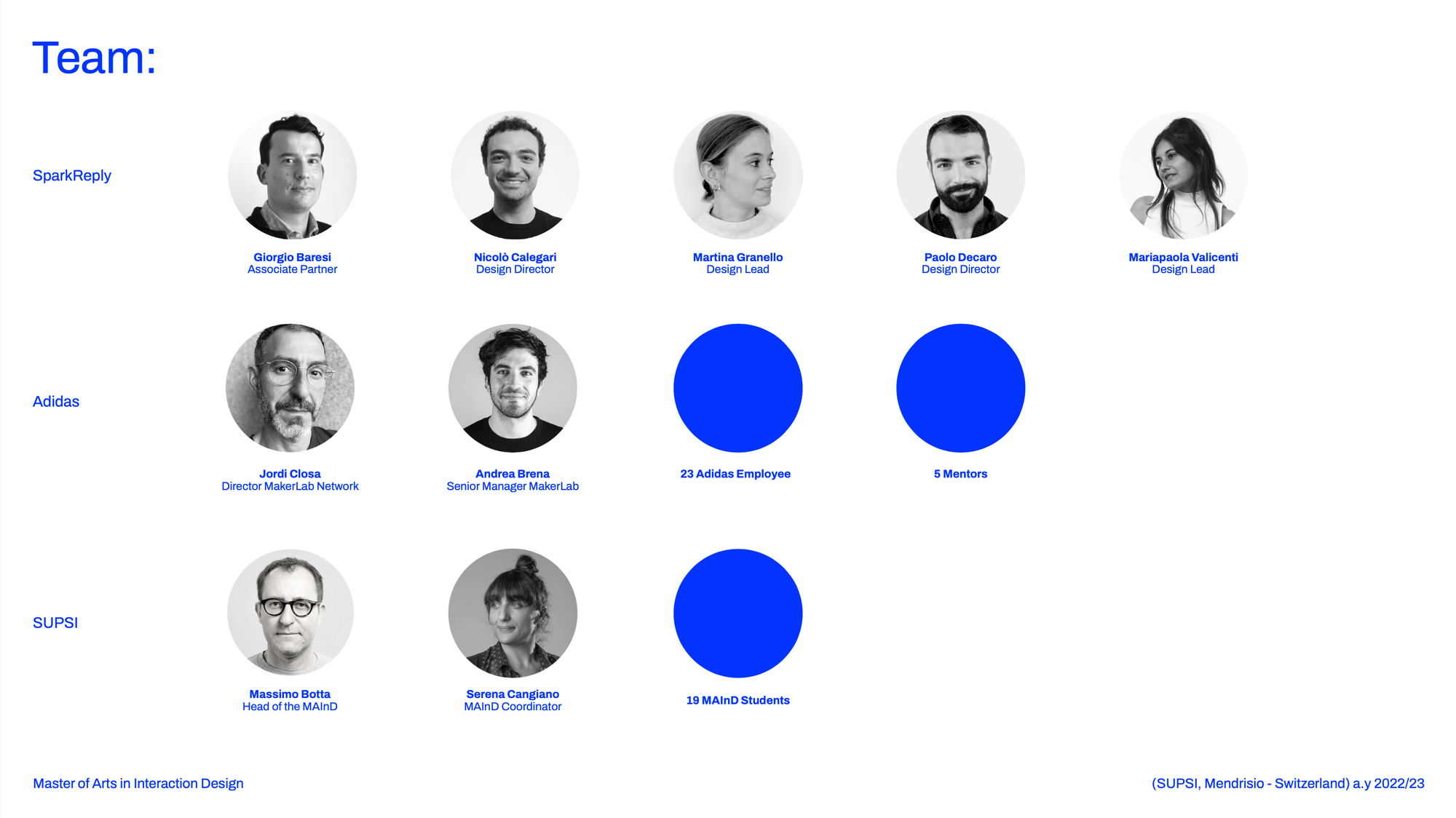
Participation as a driver of fulfillment
Participation has been a defining aspect of this process.
At adidas, over the last two years I have been cultivating a peer-to-peer learning network of like-minded colleagues called Connection Lab.
This platform felt immediately like the right venue to open this project to the 900-member network offering the opportunity to anyone who showed interest to participate and contribute to this project.
I could already sense how resonating the topic could be but could not expect such an overwhelming response. Simply sharing an open call to participate in the User Research, we could provide the students with a pool of 30+ people.
What was also important, was to connect the students with those responsible for the employee experience to learn more about the status quo.
Through the Connection Lab, I could also identify potential mentors with solid experience in either service or strategic design that as soon as they heard about this opportunity showed interest in supporting the students.
It all worked out.
Students reached out to the pool of interviewees. The mentors met regularly with the students and assisted them as they ventured through this 8-week program. The results were impressive and inspiring and a reminder of what can be achieved in such a short time.
The projects are now in the open domain, and one of them has been nominated for the prestigious UX awards, picked among 400 applications. A reminder at the end of the post will link you to the voting page for Lumina!
To view the collaboration PDF, click here.
To view the pdf of each project, click here.
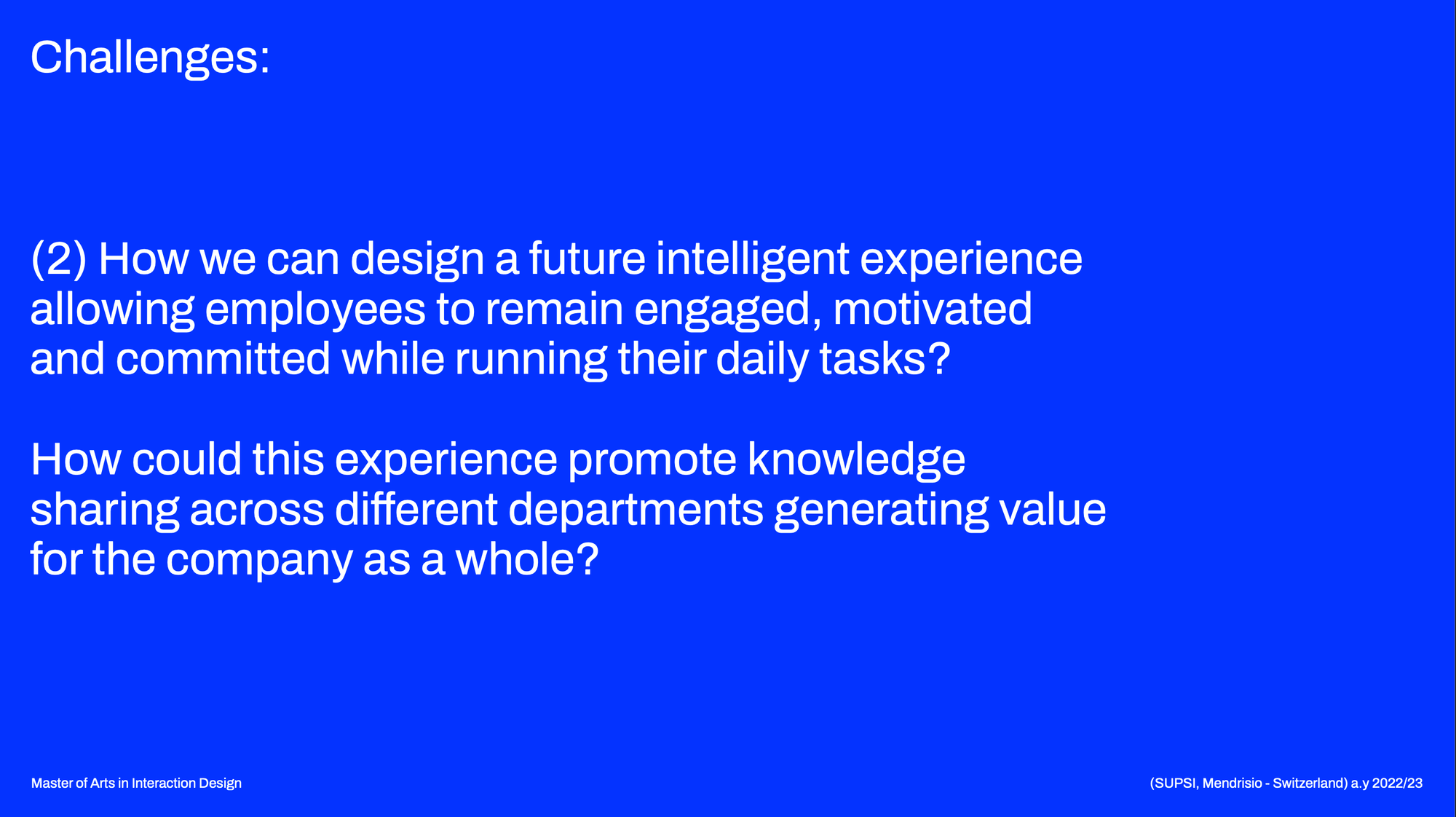
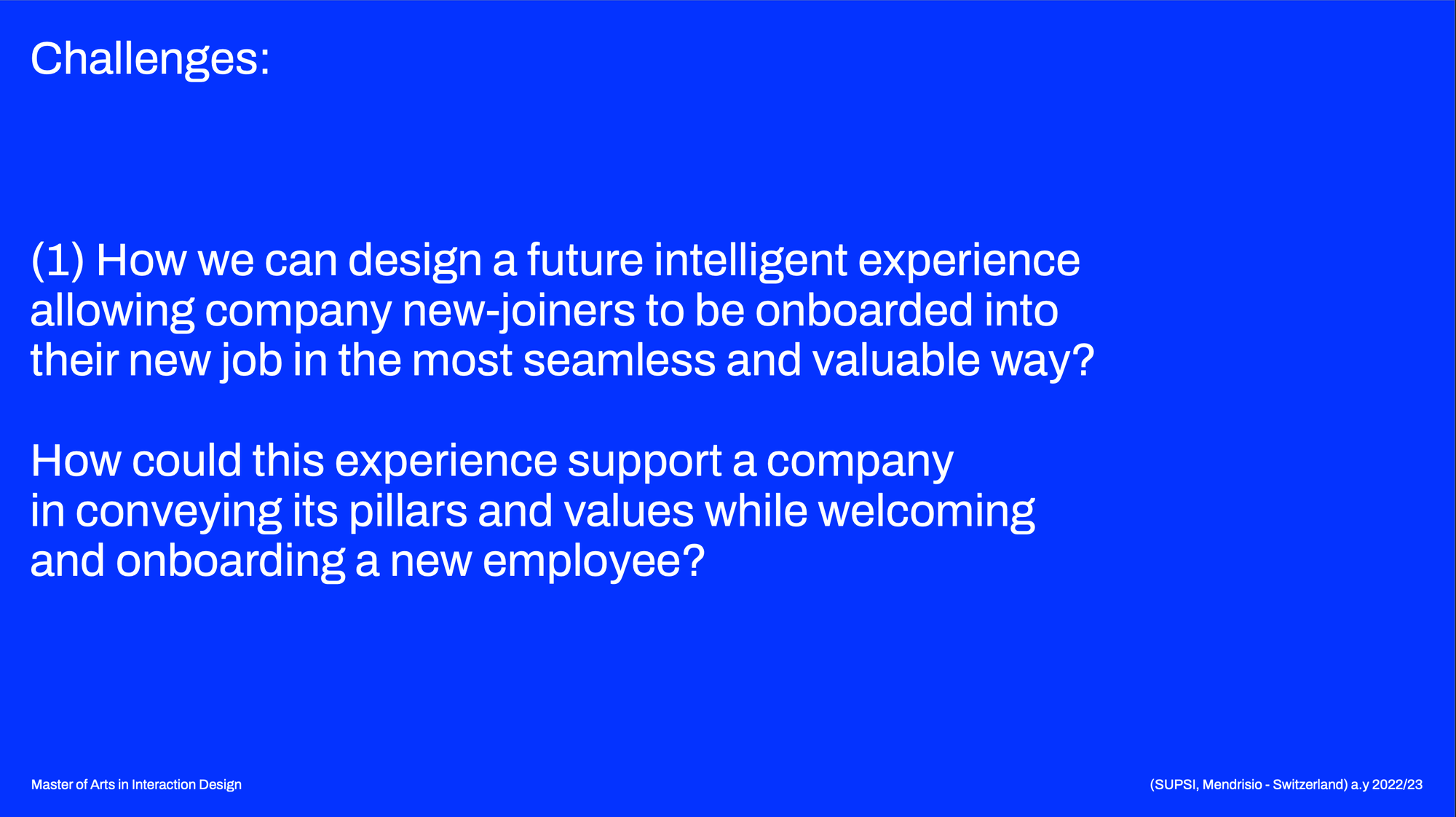
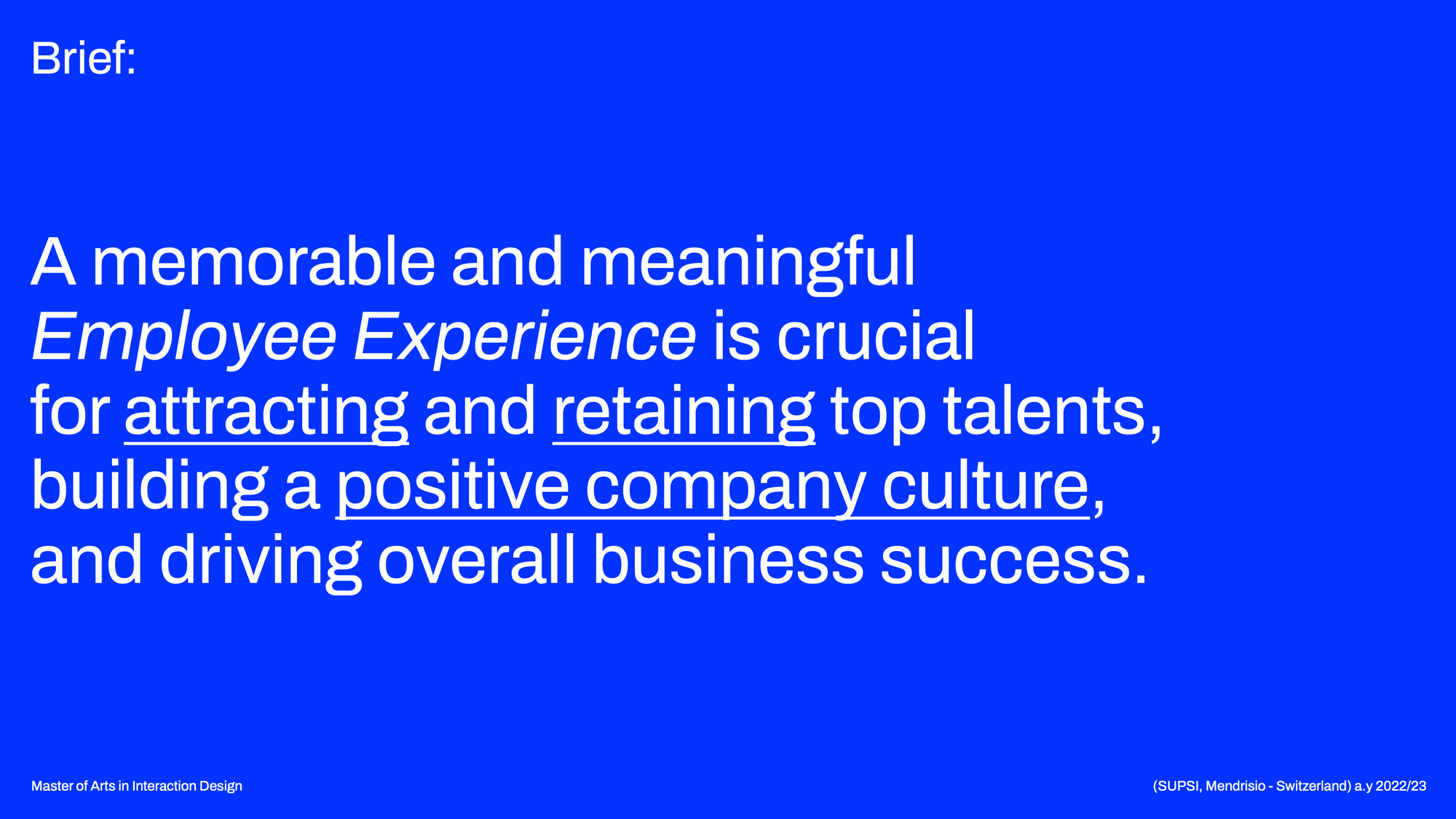
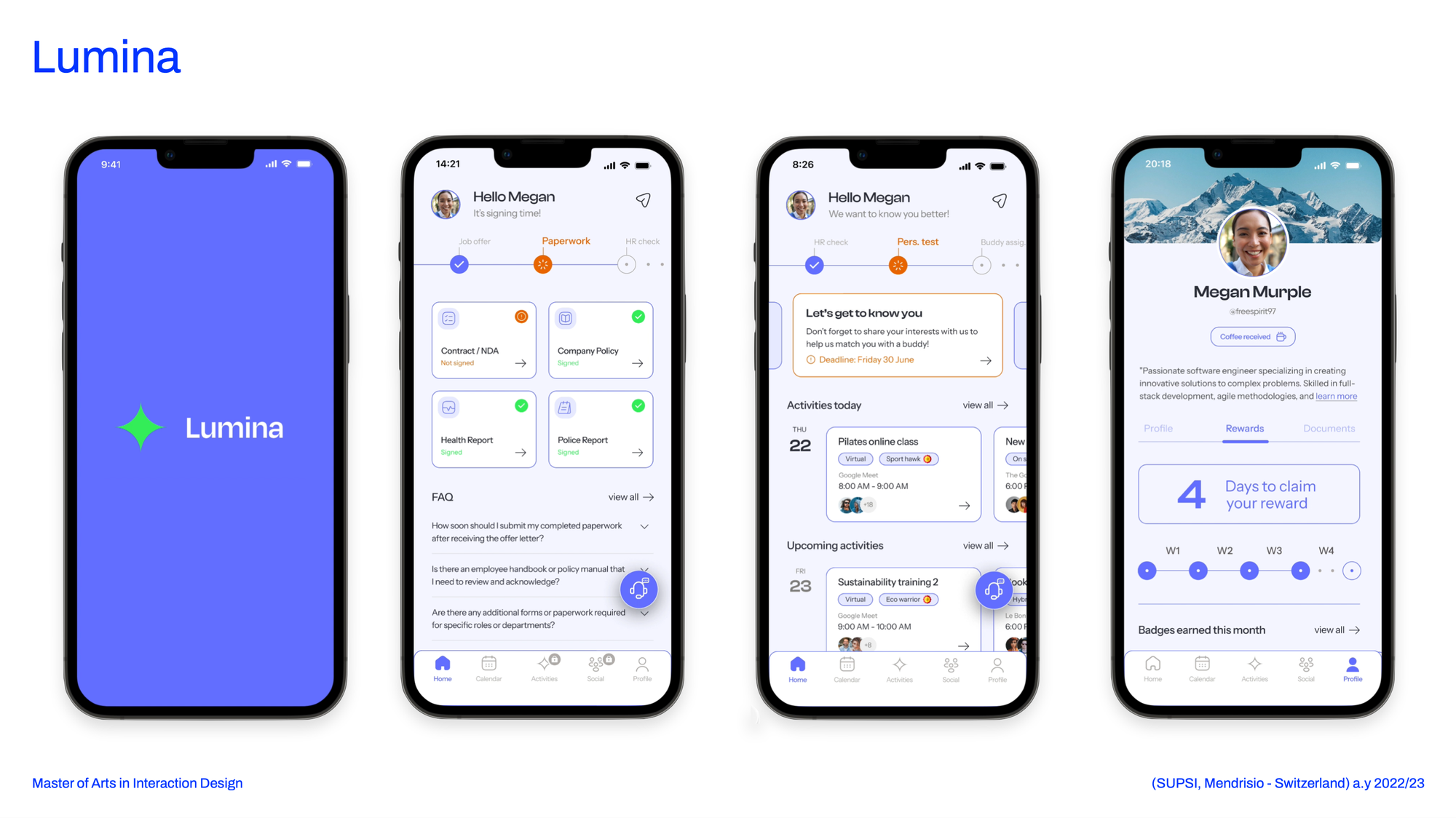
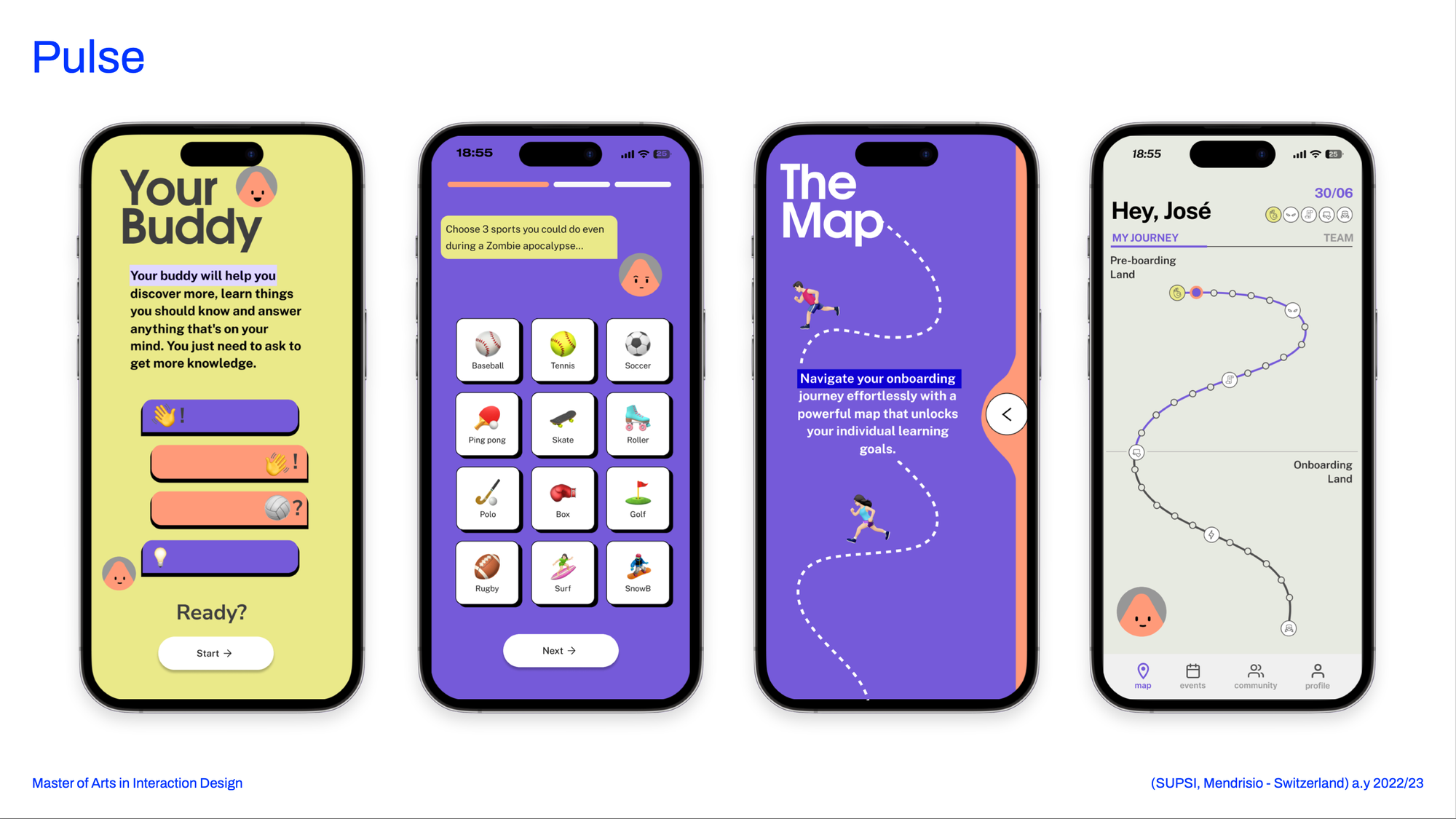
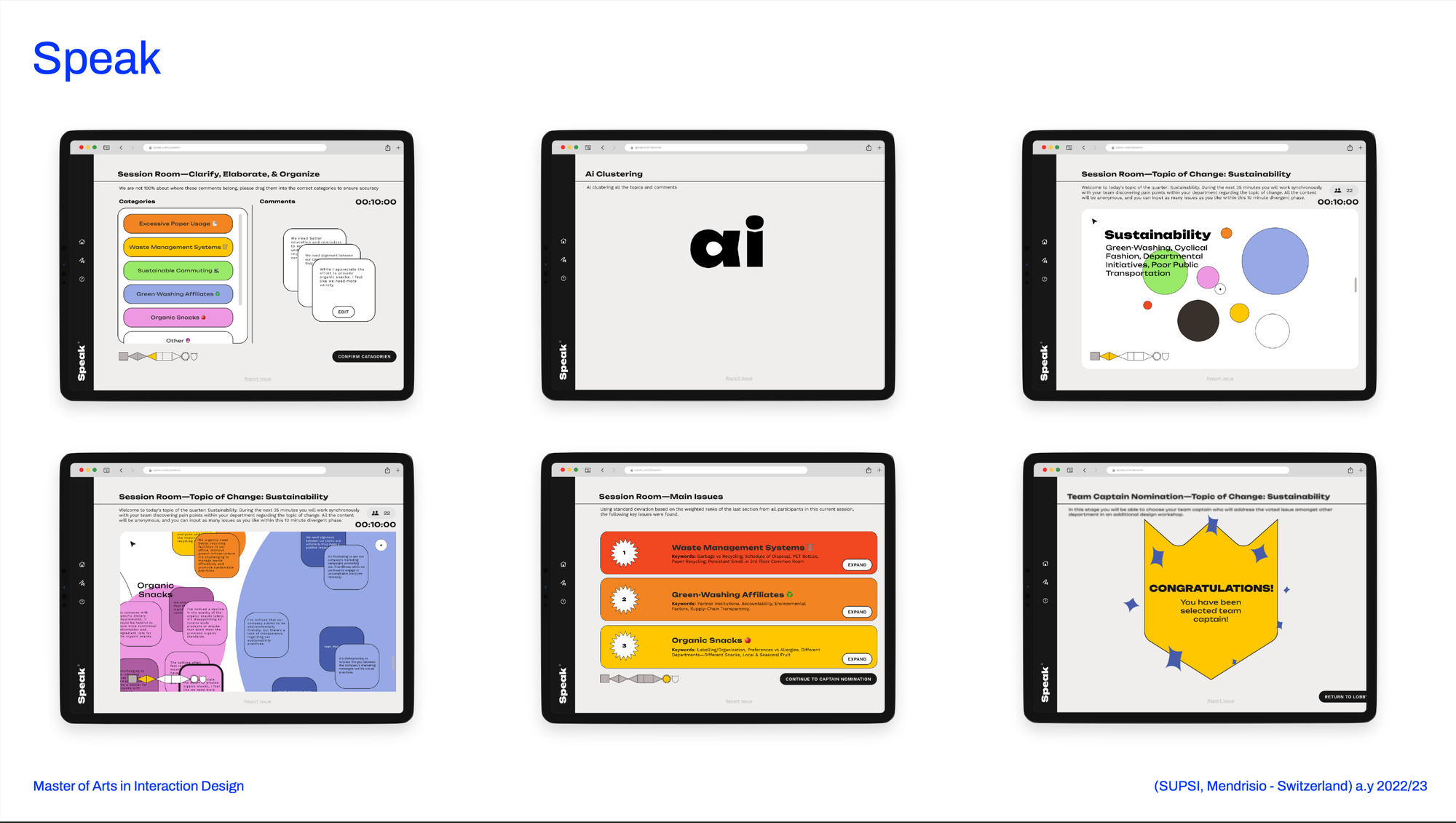
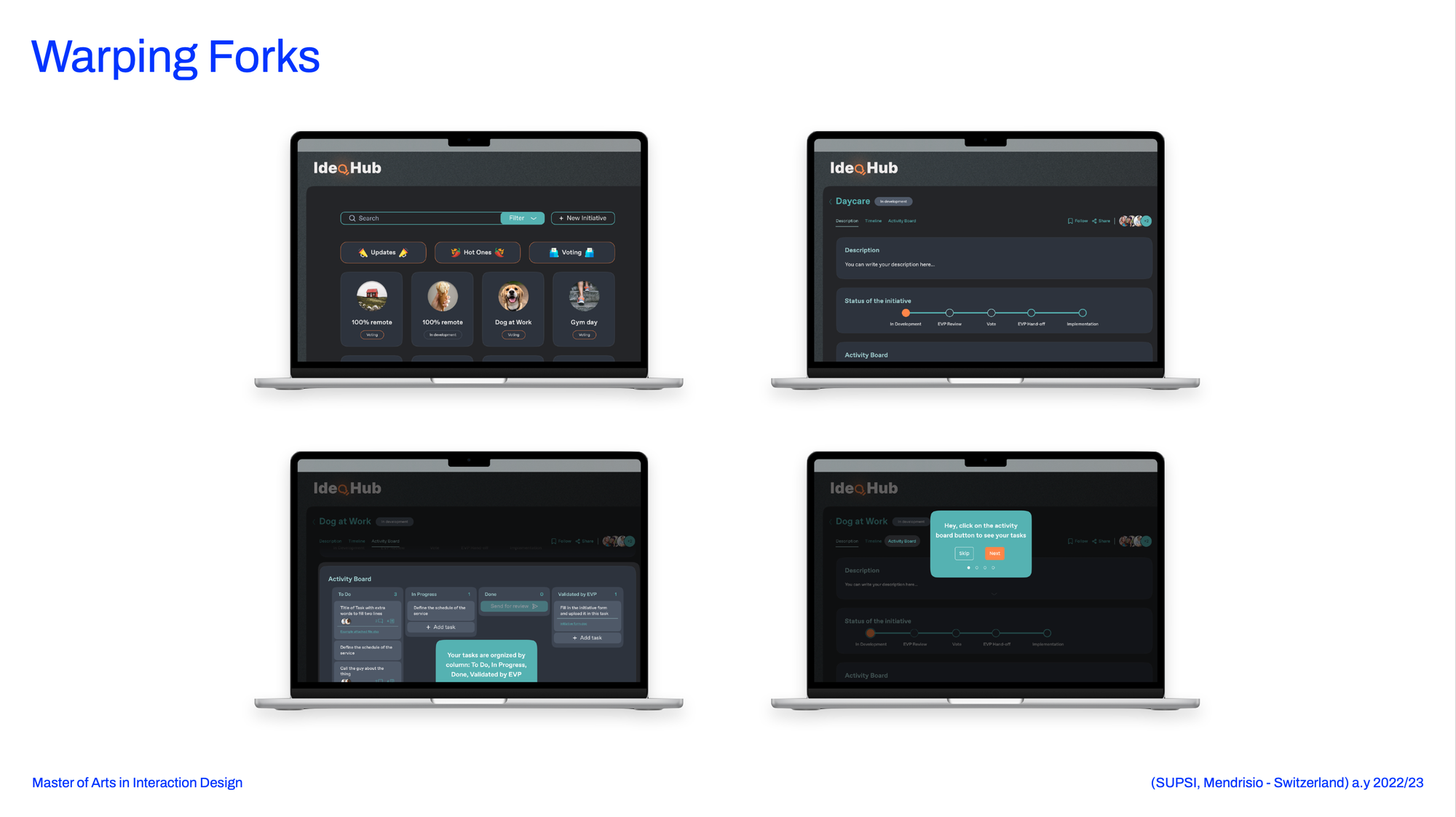
Build the plane as you are flying it
Orchestrating such frameworks, and building the plane as you are flying it while ensuring a positive participation experience has kept me alert and ready throughout the process.
I have never been trained as a service designer, but facilitating this program has given me so many valuable insights into Service Design methodologies and tools.
While creating a playbook that will apply to the next collaboration won’t be useful, developing a reactive muscle to shape future collaboration characterized by participation seems a direction I am naturally drawn to.
This experience proved to me the importance of participation in creating a conducive learning and working environment in an organization. I am curious to see where next I can test and apply the learnings of this experience.
If this was a fairytale, they would all live.. happily ever after.
Conclusions
Step out of your comfort zone
Engaging in new partnerships and projects is an intentional act toward growth and development.
Reciprocal collaborations are powerful
When collaborating ask yourself what value and principles your collaborations should be defined by, and the actions will follow accordingly.
Participation drives purpose
One way to cut through the noise and make something stick with your audience is to involve it in the creation process. Hello, co-creation.
Adapt and learn
With no universal playbook, be ready to change and adapt your plans smoothly and with the participant experience in mind.
Knowledge-sharing is a catalyst
Knowledge-sharing is a powerful tool that organizations should leverage to foster belonging and stronger participation.
If you found this piece helpful, I would appreciate you sharing this with someone who might be interested in this and future stories.
Don't forget to vote for Lumina
See you in 2 weeks!
Andrea